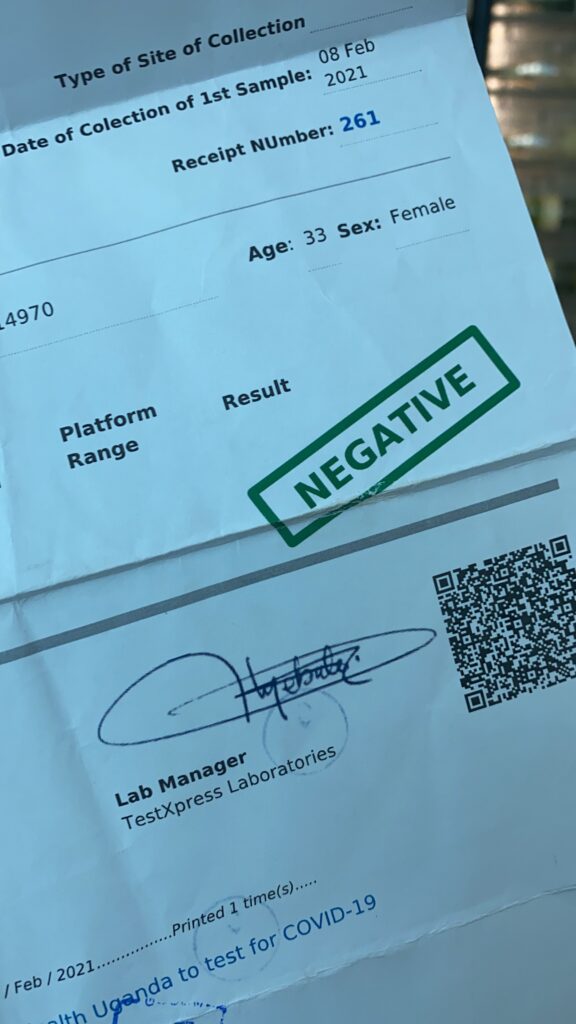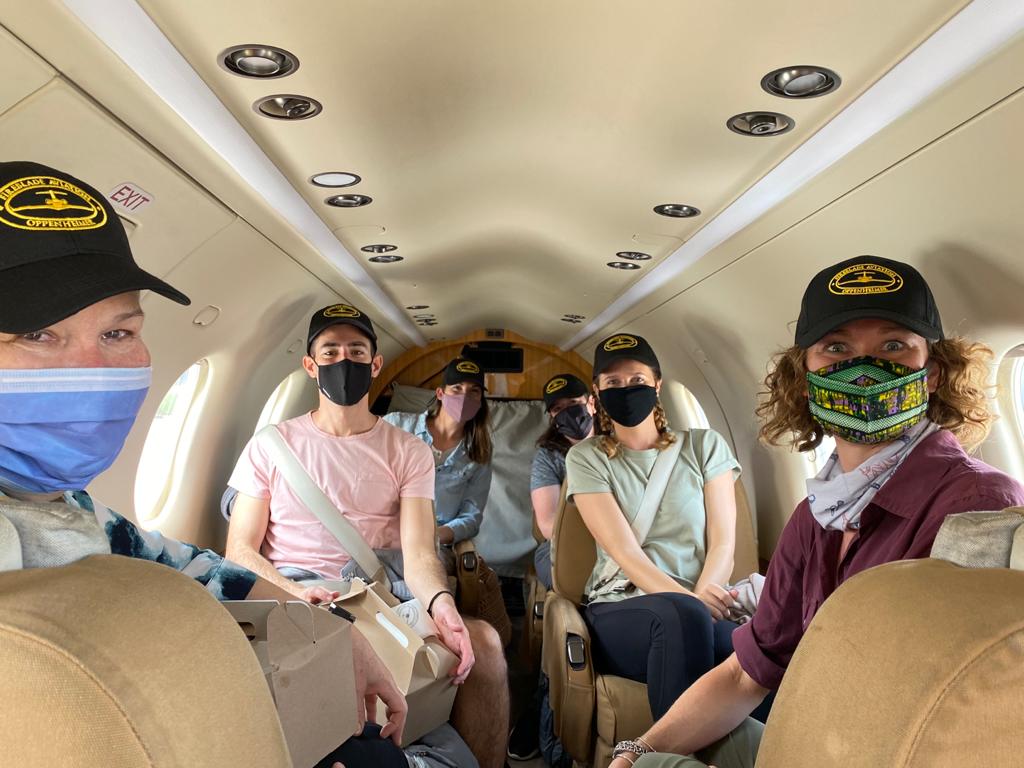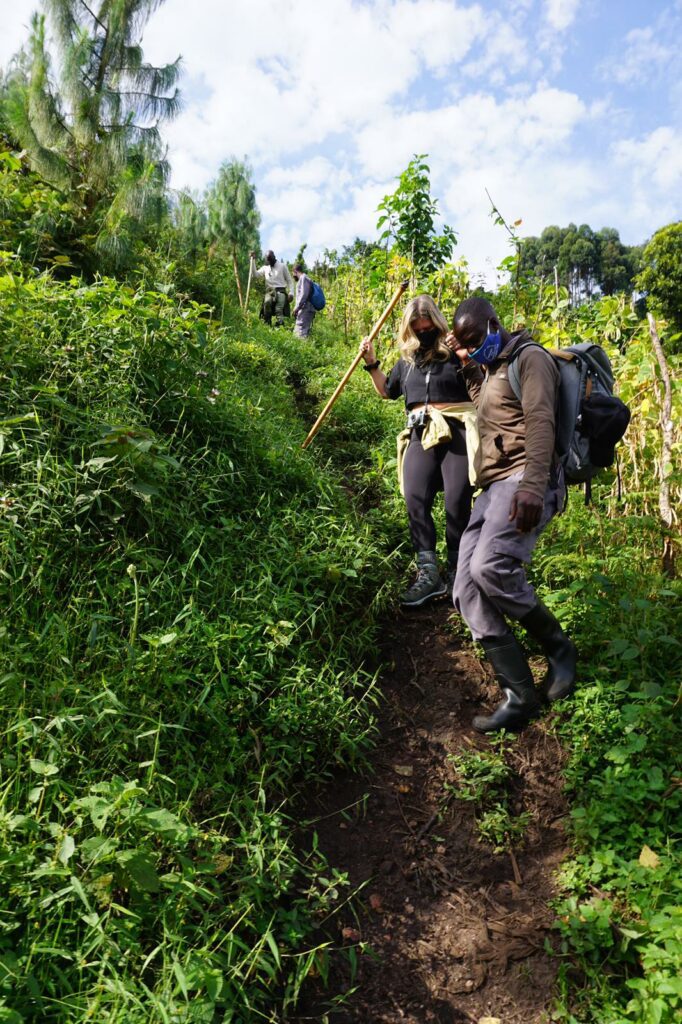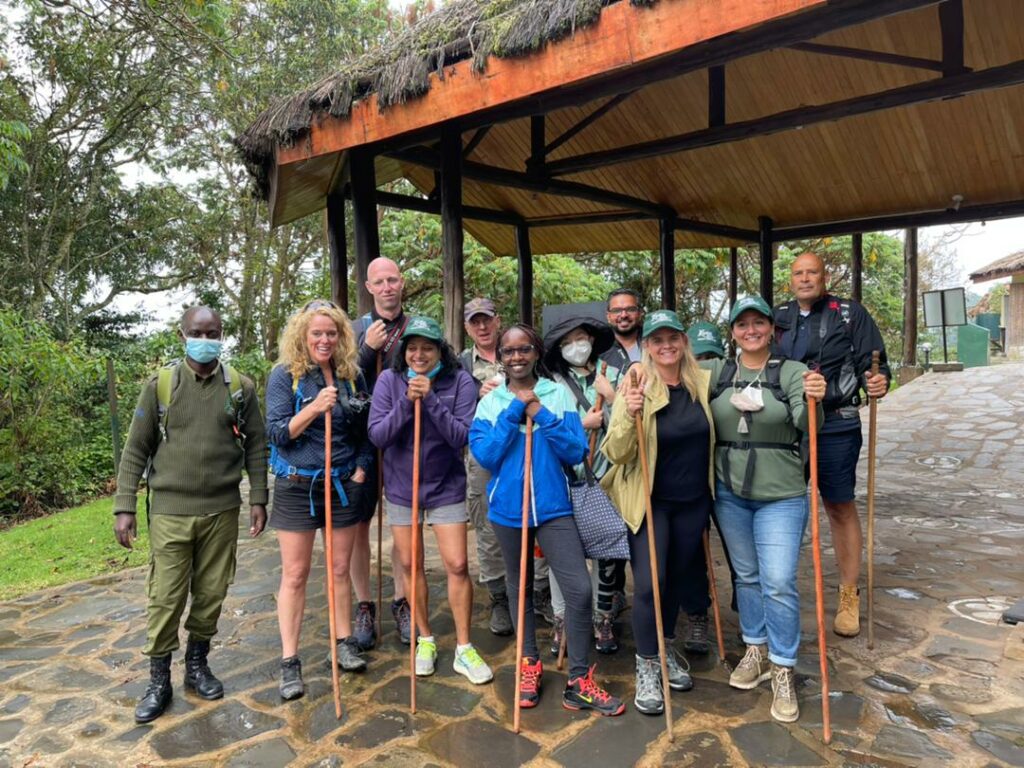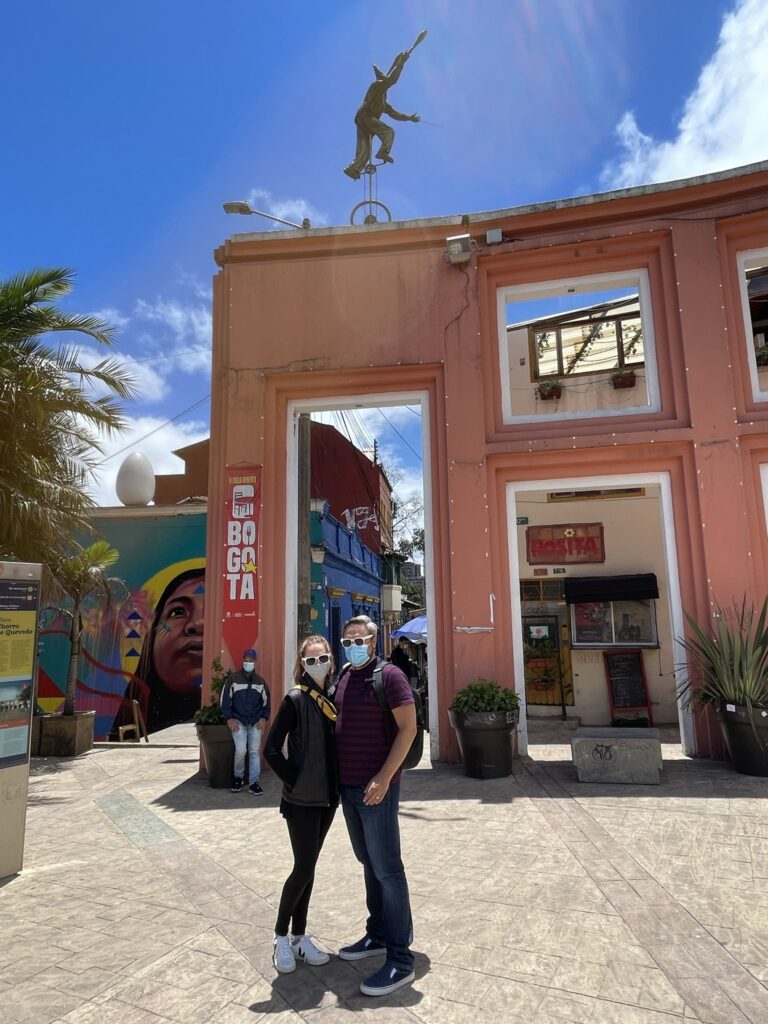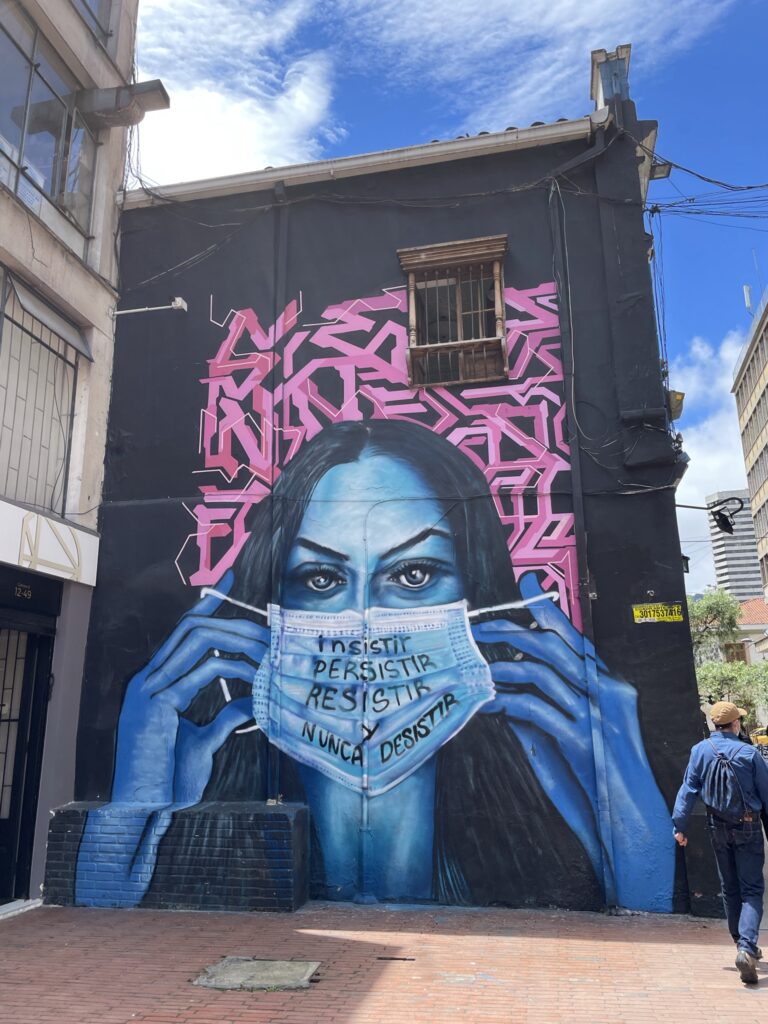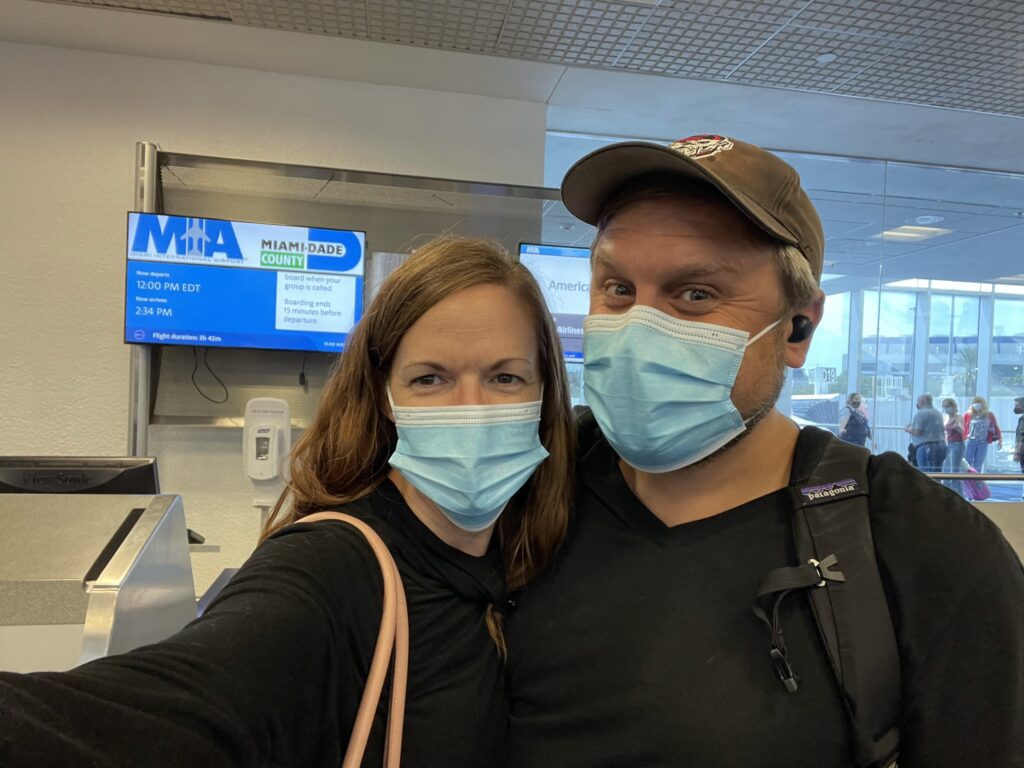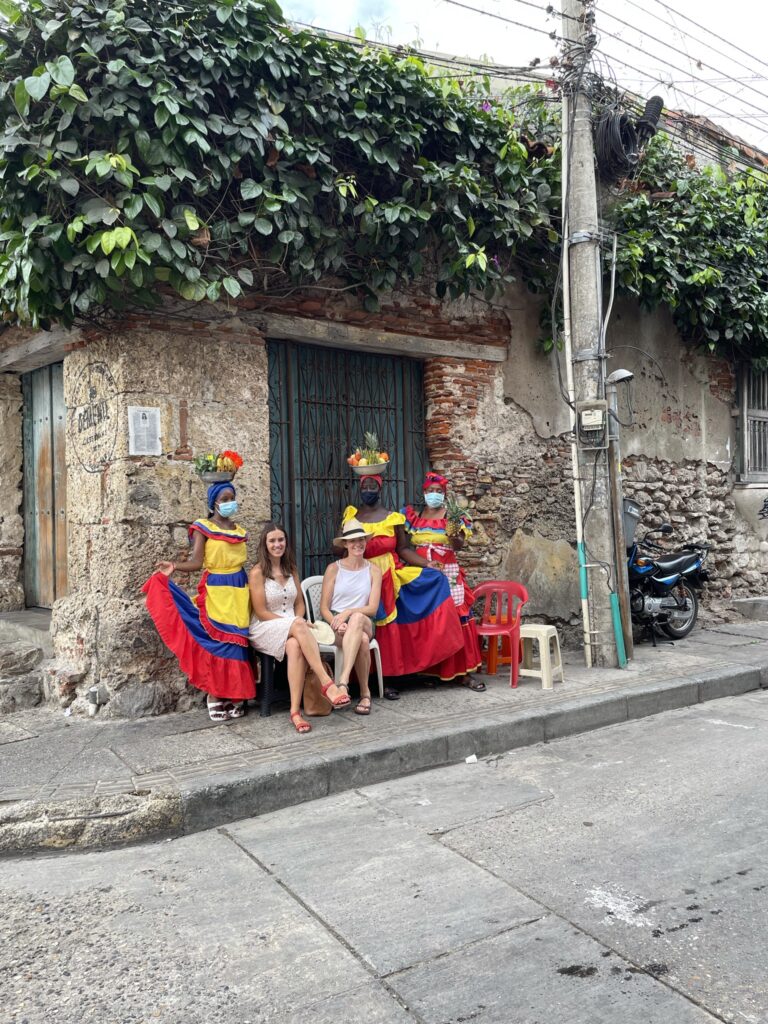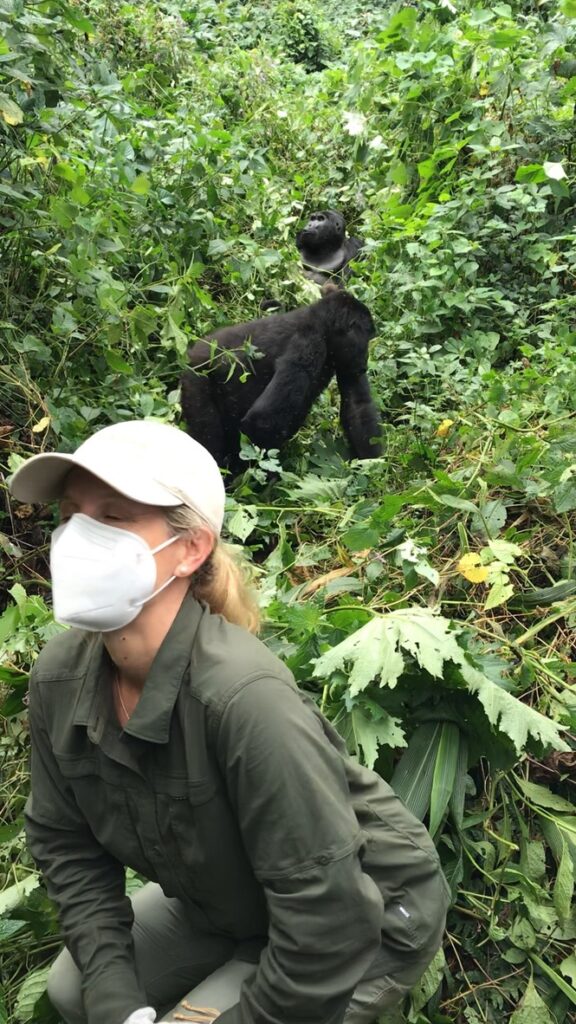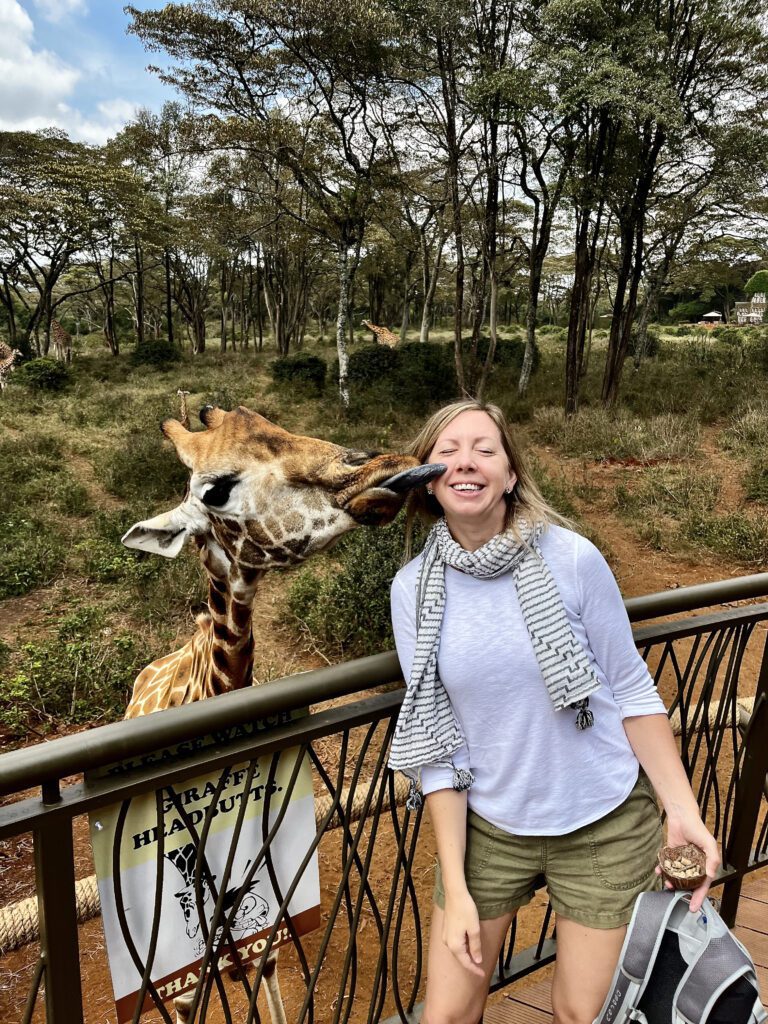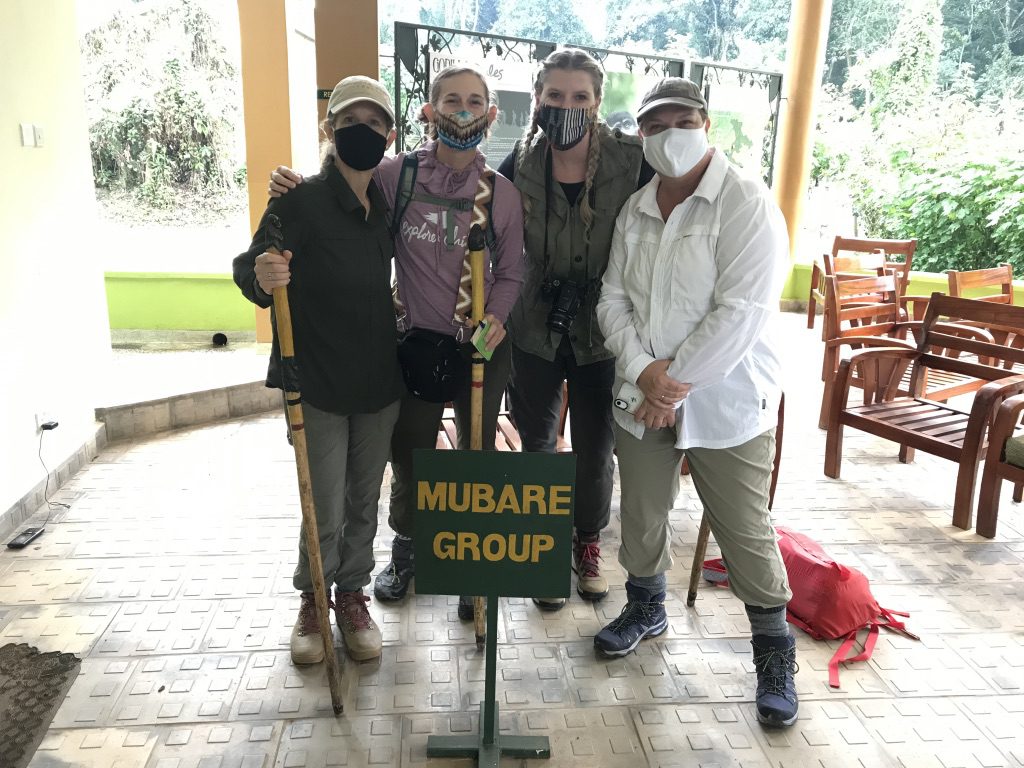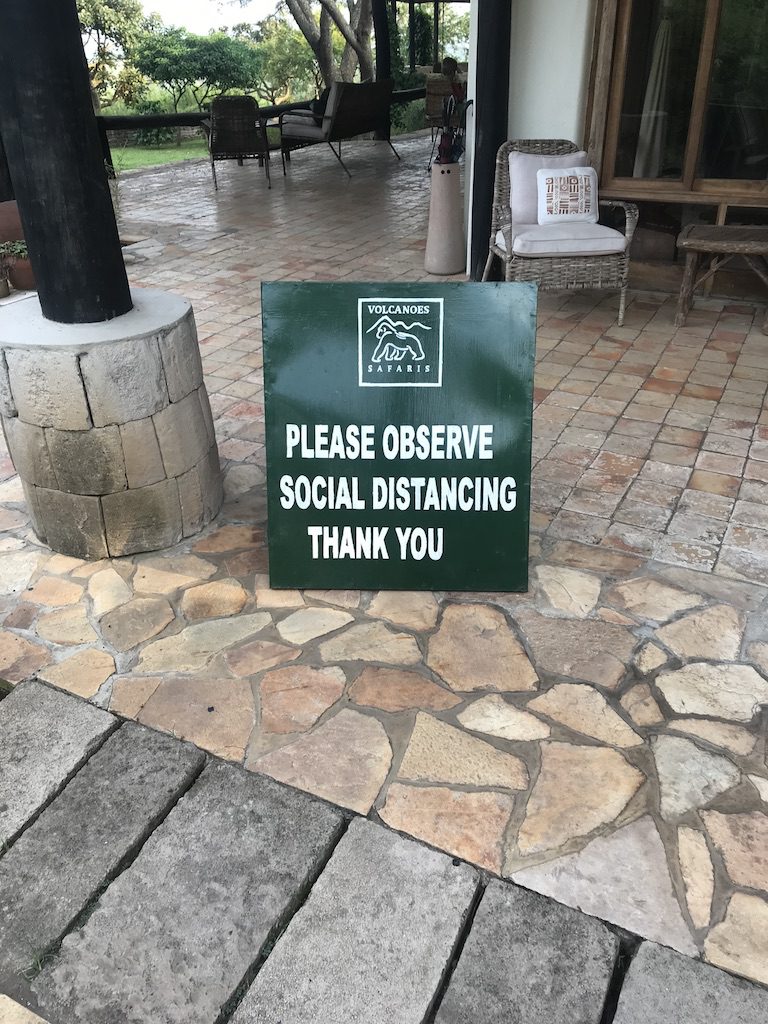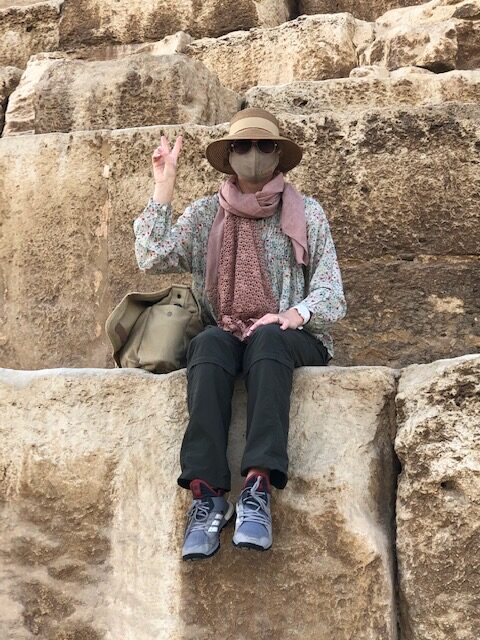So what’s it like really like traveling during the pandemic?
We’re not going to sugar coat it, traveling during the pandemic can be complicated. It requires more preparation and getting into the fine details than it used to, but if you ask us, now is actually an incredible time to travel. The crowds are low, wildlife is flourishing, and people are craving connection. If we learned one thing through this pandemic it’s that travel is a privilege, one we’ll never take for granted.
That said, traveling during the pandemic isn’t for everyone—it takes patience, flexibility, and a bit of bravery right now, but we promise you that it’s incredibly rewarding. Travel might not be as easy as it once was, but it’s more than possible with the right people planning every last detail for you (ahem, us!) We’ve had nurses fly in by helicopter to do our covid tests mid safari (one of the thousands of PCR and antigen tests our team and clients collectively took this year). We’ve filled in all the paperwork, arrival documents, and passenger locator forms. We’ve quarantined. We’ve stayed on top of the ever-changing regulations, border restrictions, testing, and vaccine requirements for each country. We did all the legwork for you in 2021 so that you can travel with us this year knowing we’ve got your back, and really know our stuff.
It’s also a very rewarding time to travel internationally—not only because it feels good to light up our souls with travel and get out of our homes, but because the people who work in the tourism industry around the world are so grateful to have clients again. Travel is the largest industry in the world, employing one in every ten people globally. So many people’s livelihoods depend on it. We choose our partners carefully and ensure that local communities directly benefit from your investment in travel there.
Last year our team traveled during the pandemic safely to South Africa, Botswana, Rwanda, Uganda, Zambia, Tanzania, Egypt, Colombia, Mexico, Canada, and the USA. Everyone made it home COVID-19 free. We avoided getting sick by getting our vaccines, following CDC guidelines for travel, checking the World Health Organization site, following precautions, and local government regulations, using lots of sanitizers, N95 masks, and a whole lot of handwashing.
We trekked to see gorillas in Rwanda and Uganda and danced with the ancient Batwa tribe in the same forest (masked and with new social distance protocols in place). We explored Botswana’s Okavango Delta, sipping wine while watching elephants cross the river. We took selfies with zebras and stayed in domes in Tanzania. We hung out with the Maasai and rode horses in Kenya. We visited South Africa’s private game reserves alongside family and friends and saw a double rainbow at the Cape of Good Hope. We sipped on coffee in a Colombian hacienda and wandered the colorful streets of Medellin. We slid down the dunes in America’s national parks. We sent clients to all of the above destinations to travel during the pandemic plus Zimbabwe, Namibia, Mozambique, Chile, Peru, Ecuador, Argentina, and New Zealand.
The kind of travel we do, sustainable luxury adventure travel, might just be the perfect antidote to all the staying home and quarantining we’ve been doing—getting outside into nature, taking long hikes, driving around in open-air safari vehicles, staying in private cabins, tents, and cottages away from crowds—all of which are easy places to social distance.
Planning your 2022 adventure? Here are 10 tips on traveling during the pandemic from our team who’ve pretty much been through it all:
1. Be flexible—it’s no time to expect everything to go as planned
The number one piece of advice we have for traveling during the pandemic is that you have to be flexible. Honestly, it’s not for everyone and requires patience, flexibility, and a go-with-the-flow attitude. That said, it’s also one of the most rewarding times to travel once you get to your destination. The beaches are less crowded wildlife is thriving and, you can go on game drives without seeing another vehicle all day. Places that were once over-crowded, you might find you’re the only person there (it happened to us while visiting the penguins in Cape Town’s Boulder’s Beach—not another soul in sight!). If you’re the kind of person that can handle last-minute changes, possibly evening curfews, and a bit of extra adventure then you’re good to go.
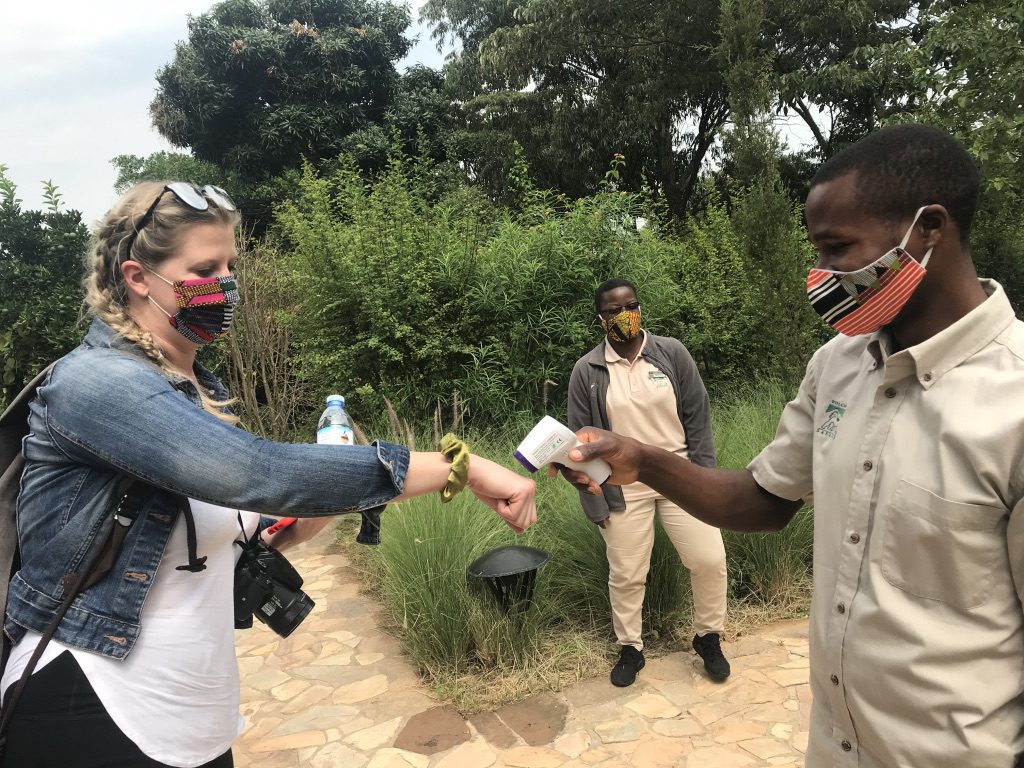
2. Be prepared to wait—travel right now requires a bit of patience
As if airport lines for travel weren’t long enough in pre-pandemic days and the check-in process wasn’t already time-consuming, unfortunately, those tedious lines are substantially longer now thanks to all the document checks and testing. The best way to avoid feeling stressed before you fly is to give yourself ample time at the airport to check-in. Inside the airport, getting through customs also takes a bit of added time. The one place things don’t seem to have changed much is going through security. Get there early, and get yourself a lounge pass in case things go by faster than expected (what’s better than a pre-flight mimosa or glass of wine knowing you’ve made it through the most difficult part?).
Download a couple of good shows on Netflix, pack a book, and expect to spend a little more time waiting than you might be used to. Patience is a virtue. Whenever possible, we always include a VIP meet and greet for our clients upon arrival to their destination or in transit, which really helps with navigating the airports, arrival tests and forms, and puddle jumper flights with smaller airlines between camps.
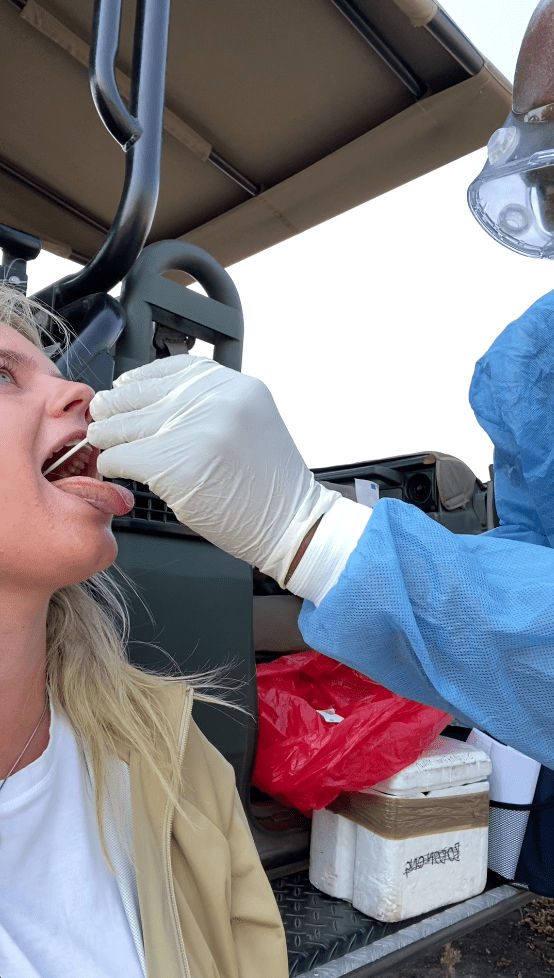
3. Testing can, and will, add time and expenses to your trip
It’s crucial for you to plan ahead and know when and where you’ll need to get a PCR or antigen test upon arrival and/or departure from your destination before leaving. In many cases, booking appointments ahead of time whenever possible is best. This will help you avoid any stress or missed flights due to late test results. Our team knows when and where you’ll need to be tested in all our destinations—so leave it to us to arrange them.
When you’re staying in remote camps and properties, sometimes the only option is to fly in a health practitioner to do your covid test on-site so that you’ll have the results in time for your next international destination. Think of it as a unique, once-in-a-lifetime experience watching a helicopter fly in and meet you in the middle of the savannah to test you, mid game drive. We also like to think of it as entertainment for the wildlife.
Another pro tip: Purchase a few Emed antigen tests before your trip and carrying them with you—that way if you need a test immediately, are looking for a second test to double-check a result, or only require an antigen test to fly home, you don’t have to go through the trouble of tracking one down in a remote place. Just remember you’ll need internet access to set up the virtual appointment with the doctor while you take the test and wait for your results to arrive.
4. Plan to take your final test before flying home where you’d potentially have to quarantine.
Speaking of tests… let’s say, for example, you’re in the Seychelles, staying at a property on a small island before making your way back to the mainland to catch your international flight home. We recommend you take the test there, on the island, because in case you test positive, most properties will do their best to make arrangements and provide a special rate for a quarantined stay (no guarantees though!). But, if you take the test at the airport and you test positive, you’ll likely have to stay in a government-sanctioned accommodation/facility that’s approved for quarantine and go there immediately. We talk to our clients and ensure they think about where they’ll be taking the tests and where they could potentially test positive. We can’t make any promises, and we don’t have superpowers, but of course, we’ll do everything we can to make you as comfortable as possible. Some countries are much stricter than others in terms of where you need to quarantine and we keep tabs on that.
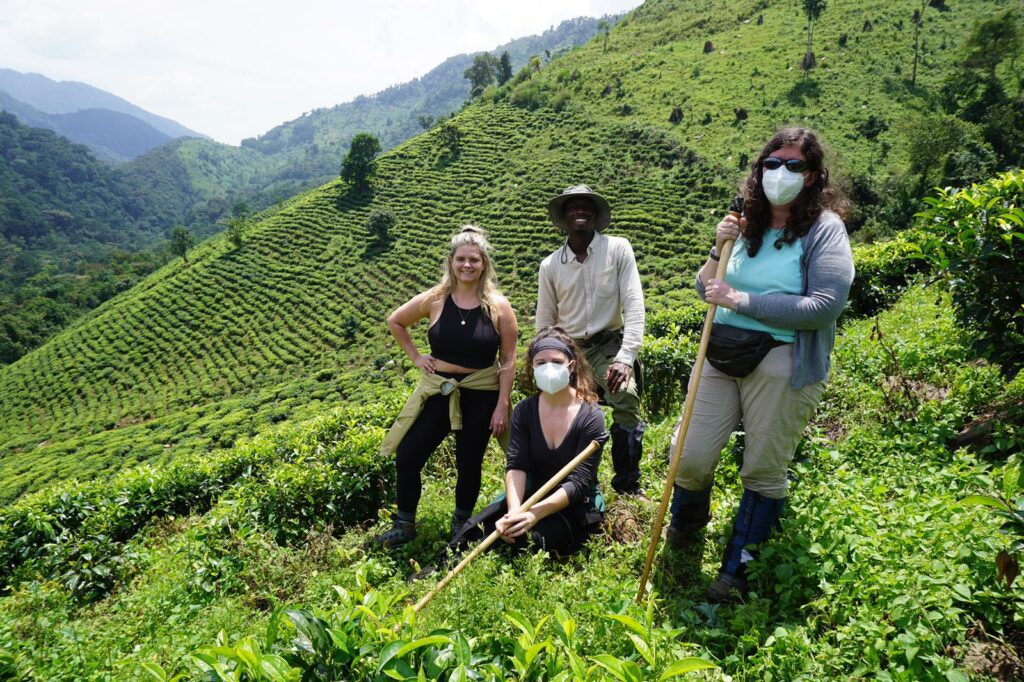
5. Take direct flights to and from your home country
There are many destinations with direct flights from the USA including Kenya, South Africa, India, Jordan, Peru, Chile, Argentina, Ecuador, Colombia. The USA will always accept its citizens back, even if there are problems, you can always come home. One less headache though is to avoid multiple connections when possible to make sure, in case of a travel ban or change, your trip home is as seamless as possible. It’s not always possible to fly direct, or necessary, but if you tend to err on the side of caution it’s something to consider.
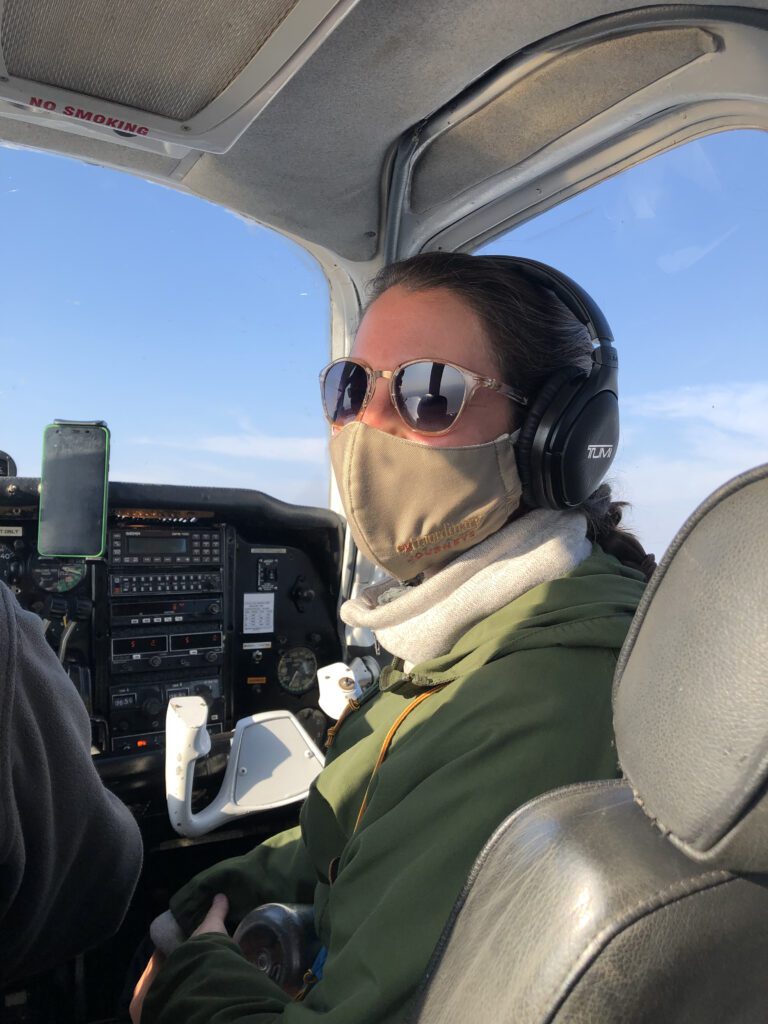
6. Check your flights often
Day by day things change. If you are catching a flight soon, be warned: it might get changed or canceled at a moment’s notice. A flight could be scheduled as planned in the morning, and by evening as rules and restrictions change, it could be a different story. Flight requirements for travel are also constantly changing. Of course, we’re keeping an eye on it for our clients, but we recommend checking yourself and keeping on top of this to avoid arriving at the airport and finding out your flight was canceled.
Left: Our content manager Alicia-Rae gorilla trekking through Uganda’s Bwindi Impenetrable Forest with a porter. Right: Going on a colobus monkey trek on the Igishigishigi trail in Rwanda’s Nyungwe Forest National Park. Images courtesy of Alicia-Rae Light.
7. Plan for the worst—you might get Covid-19
It’s a real possibility that you could get Covid-19 while you travel, so we say plan for the worst (and hope for the best!) Bring what you’d need if you were sick at home (pain killers, meds, essential snacks, etc.) Pack your laptop in case you have to quarantine at the end of your trip due to a positive test so that you can work from wherever you are in you’re able to log in remotely. It’s also a good idea to make physical copies of all your documents in case the internet goes down, your phone dies or gets lost and you need backup. Make a plan for what you will do in case you fall ill while you are traveling internationally, and be sure to consider your personal health status while doing so to weigh the risks. We highly recommend being vaccinated before doing any international travel, as per the CDC’s recommendation. Many countries require full vaccination status, and not having that can pose many more risks and headaches while traveling during the pandemic. The federal government is providing the vaccine free of charge to all people living in the U.S., regardless of their immigration or health insurance status.
8. Get to know the local government, airline, and individual property rules and regulations
Rules are rules. Time and time again we have people thinking that because they are in a foreign country they can pay their way out of vaccine requirements, tests, quarantine, and/or the requirement to stay inside their hotel room while they wait for test results, etc. This is not the case—we’re not about that and we’re not going to fight the rules. Of course, we’ll inform you as to what the rules are, and always advocate for you to be as comfortable as possible. It’s worth checking the rules for kids—while most countries allow children to be exempt from Covid restrictions, double-check each destination. Once you get to your destination, each property you visit will have its policies and protocols in place, which they will take time to brief you on as well—which will ensure your safety during your stay.
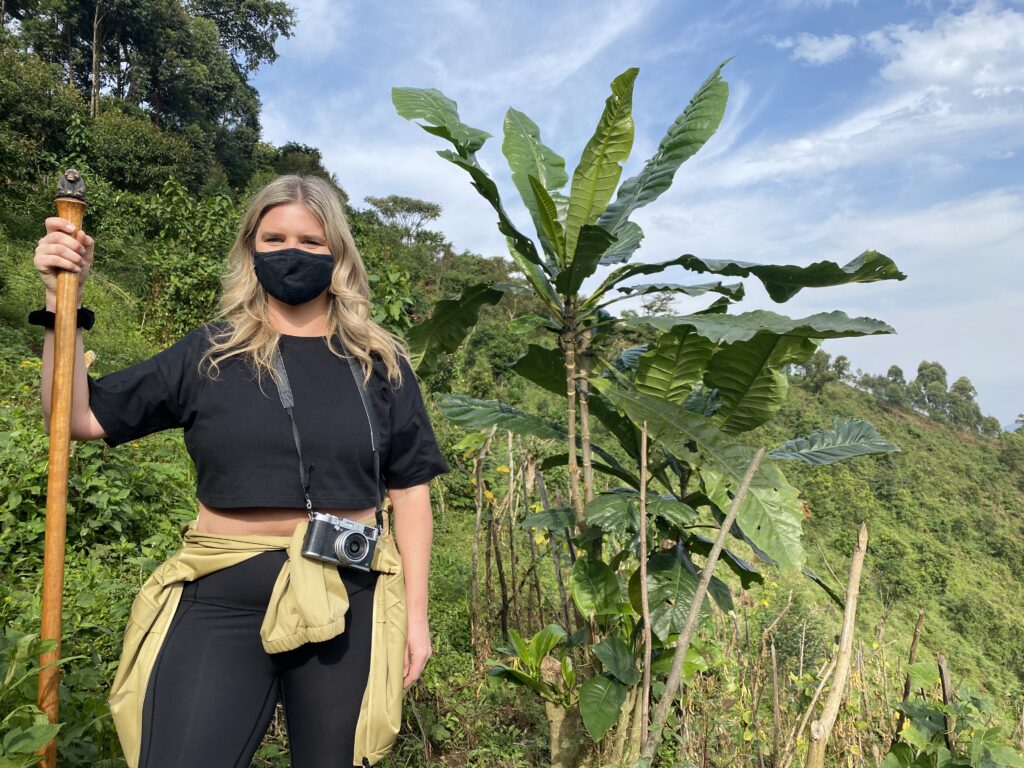
9. Some countries are less strict than others right now
Some countries are easier to navigate at the moment. For example, Kenya requires everyone entering the country to be vaccinated. Mexico, Tanzania, and South Africa don’t. Many countries have bans being lifted, lessened travel restrictions and in some places, you just need to wear a mask. We have our own internal database that’s updated multiple times a day with the latest news and information, but one great public resource we recommend is Sherpa’s latest travel and health restrictions. You can use their interactive map to discover COVID-19 test requirements, quarantine protocols, and entry restrictions for anywhere in the world.
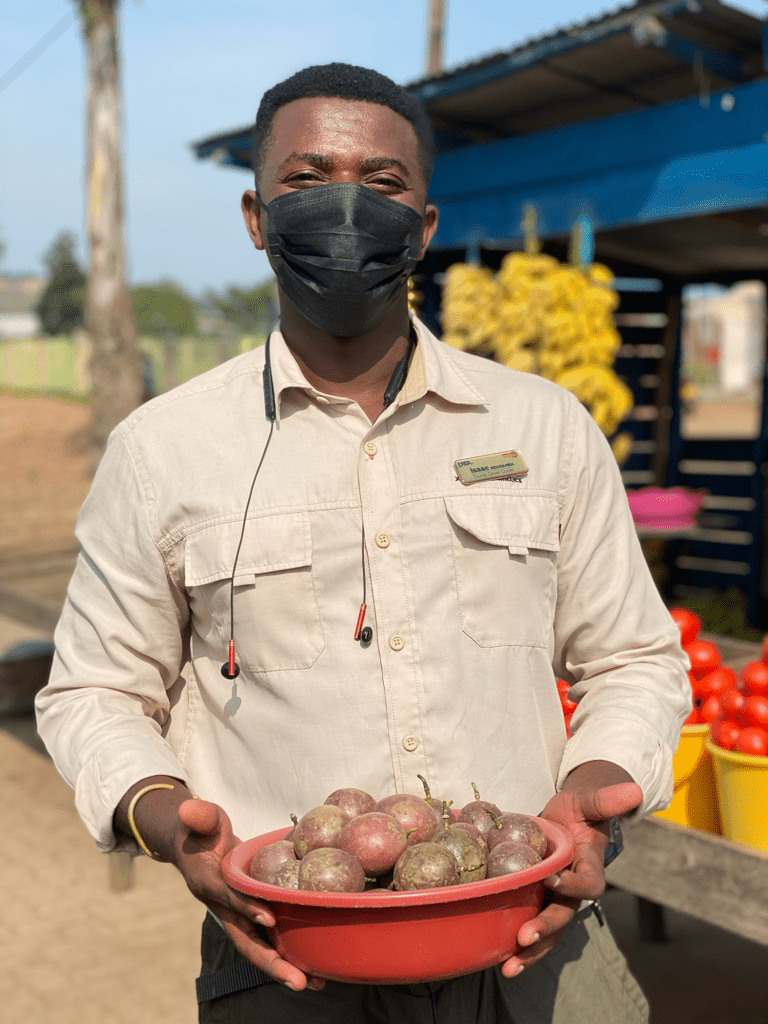
10. Get comprehensive travel insurance
While we don’t always say comprehensive travel insurance is worth it, right now having it is a very good idea and something we highly recommend. It’s worth it for peace of mind while traveling during the pandemic. It might seem expensive, but we’re finding that a lot more clients are using it right now, and it’s worth it in case of trip cancellations, interruptions, and unplanned extensions. Comprehensive plans will cover the entire cost of your trip should you happen to test positive for Covid-19 in the days before you depart for your trip.
We work with TravelGuard and our team knows the ins and outs of their policies—so if you have any questions you know who to ask (Rachel, our insurance guru).
As a side note, we’re yet to find any travel insurance policy that will cover the full cost of accommodation/meals, etc. in case of quarantine. Don’t assume that’s covered, there are limits per day and coverage maximums up to $500 per insured unexpected hotel stays due to quarantine. In some cases for a minimal extra charge, you can get some funds included in your plan to cover those unexpected hotel quarantine costs if you test positive while traveling.
Gorilla Trekking with Kyambura Gorge Lodge in Uganda. Image Curtest of Lara Ray Giraffe kisses at Kenya’s Giraffe Manor. Image courtesy of Jamie Mehrotra. Group gorilla trekking in Uganda’s Bwindi Impenetrable Forest. Image courtesy of Lara Ray. Social distance sign in Bwindi Impenetrable Forest National Park. Image courtesy of Lara Ray. Our specialist Lisa traveling during the pandemic in Egypt. Image courtesy of Gena Tweed.
What we want you to know is that our team at Extraordinary Journeys is here to help and make sure your entire travel experience is as incredible as comfortable as possible—despite traveling during the pandemic. We’ll always be here to advocate for you, and you’ll never feel like you’re doing any of it alone. It might not be perfect, but you’re surely not going to be by yourself, and it’s going to be the trip of a lifetime.
Stay tuned as we’ll be hosting a webinar next month focused on more insider tips with and open Q&A with our CEO Elizabeth Gordon, alongside our team members and clients who have traveled during the pandemic.

